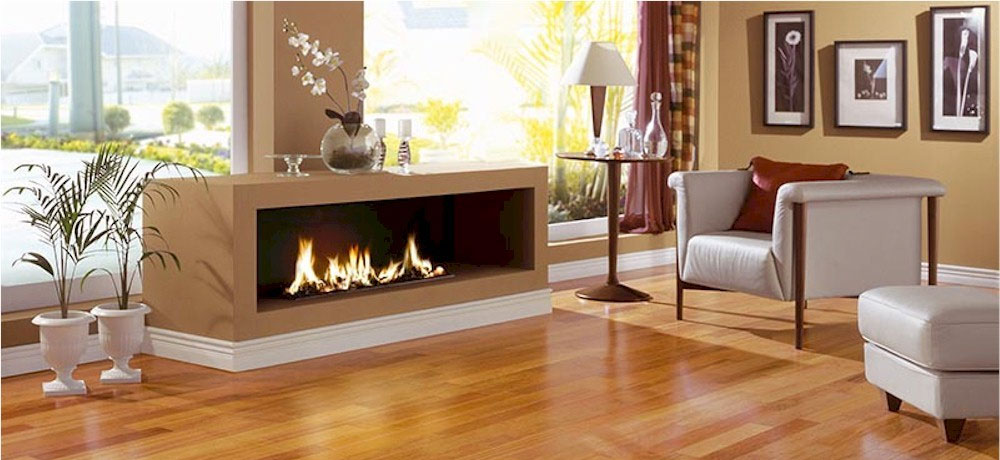Their natural beauty and durability are legend, but there are things to think about when buying hardwood floors. After all, hardwood floors are an investment that will serve your home or business well for years to come. So, let’s do our homework and get it right before we invest.
Hardwood floor providers will usually come to your home or office to explain your options and prepare a proposal. This can be an invaluable step in the hardwood floor buying process.
Use this guide to ensure you have made informed hardwood floor choices before signing on the dotted line.
Species, Color and Grain – Each of the many species of hardwoods are unique. The color of the wood is determined by the species you choose and the part of the tree from which the wood was taken. The floor’s grain pattern is determined by the manner in which the hardwood was cut. It is these variations that create the character and natural look of your new hardwood floor.
Type of Floor – The type hardwood floor you choose may be influenced by a number of factors. Basically, you will decide between solid hardwood flooring and engineered hardwood. Solid wood is milled from logs and joined with traditional tongue and groove constructions.
Solid hardwood floors are available in prefinished or unfinished models. This decision is important because unfinished floors require finishing in place, meaning that installation, sanding, staining and urethane finishing occur onsite, a process that is unsettling for some homeowners.
All these steps can be eliminated by ordering prefinished hardwood floors, which are manufactured in a controlled environment, arrive to your precise specifications and are ready to install. Over time, prefinished and unfinished hardwood floors can be screened and recoated to rejuvenate and restore the hardwood’s natural elegance.
Engineered hardwood floors are designed to accommodate environments that are not necessarily friendly for solid hardwood. Climate, especially moisture and budget can be determining factors. Solid hardwood is rarely successful below grade where engineered floors have performed well.
Type Finish – Whether you select a prefinished or unfinished floor, the finish you choose will determine the overall appearance of the floor. There are a number of finishes to consider and you must gain the knowledge to be sure of your decision before you finalize. Choosing gloss, high gloss or clear gloss can make the same floor look completely different.
Weather, Climate, Moisture and UV Light – Wood is a natural product that expands and contracts depending on a number of weather related factors. Humidifiers can help prevent extreme expansion and contraction but consider the floor’s exposure beforehand. When you think about buying hardwood floors, exposure to weather, moisture and ultraviolet light should be considered. Solid hardwood does not fare well in moist areas. If exposed to high levels of ultraviolet rays, the shade of the floor will change faster than if the hardwood is protected. Covering and rotating throw rugs or moving furniture can offer some relief but excessive UV exposure should be avoided if possible.
Demolition and Disposal – If you decide hardwood floors are the right investment, your existing floor covering will need to be removed, demolished and disposed. Be sure to get a price for this work and add to your hardwood floor budget. Once the existing covering is removed, you may find that the sub-floor requires prep work before the hardwood can be installed. Be sure to allow for this potential expense.
Cost – The cost of your hardwood floor investment will be affected by several conditions mentioned above and by the species, type floor and finish you choose. For the most part, the cost of solid hardwood flooring ranges from $2.49 per square foot to $12.69 per square foot. Engineered wood floors typically run between $1.69 and $8.79 per square foot.
The cost of installation of your new hardwood floor will run about 50% of the cost of the floor. However, the condition of the sub-floor, any demolition charges and who will move the furniture will affect your installation price. Be sure to discuss all these possibilities with your hardwood floor provider and installer before finalizing you investment.
When making these decisions, remember that when you think about buying hardwood floors, your investment will not only add to the natural beauty and feel of your home or office but will also add to the value.
Please feel free to contact us if you have any questions.

